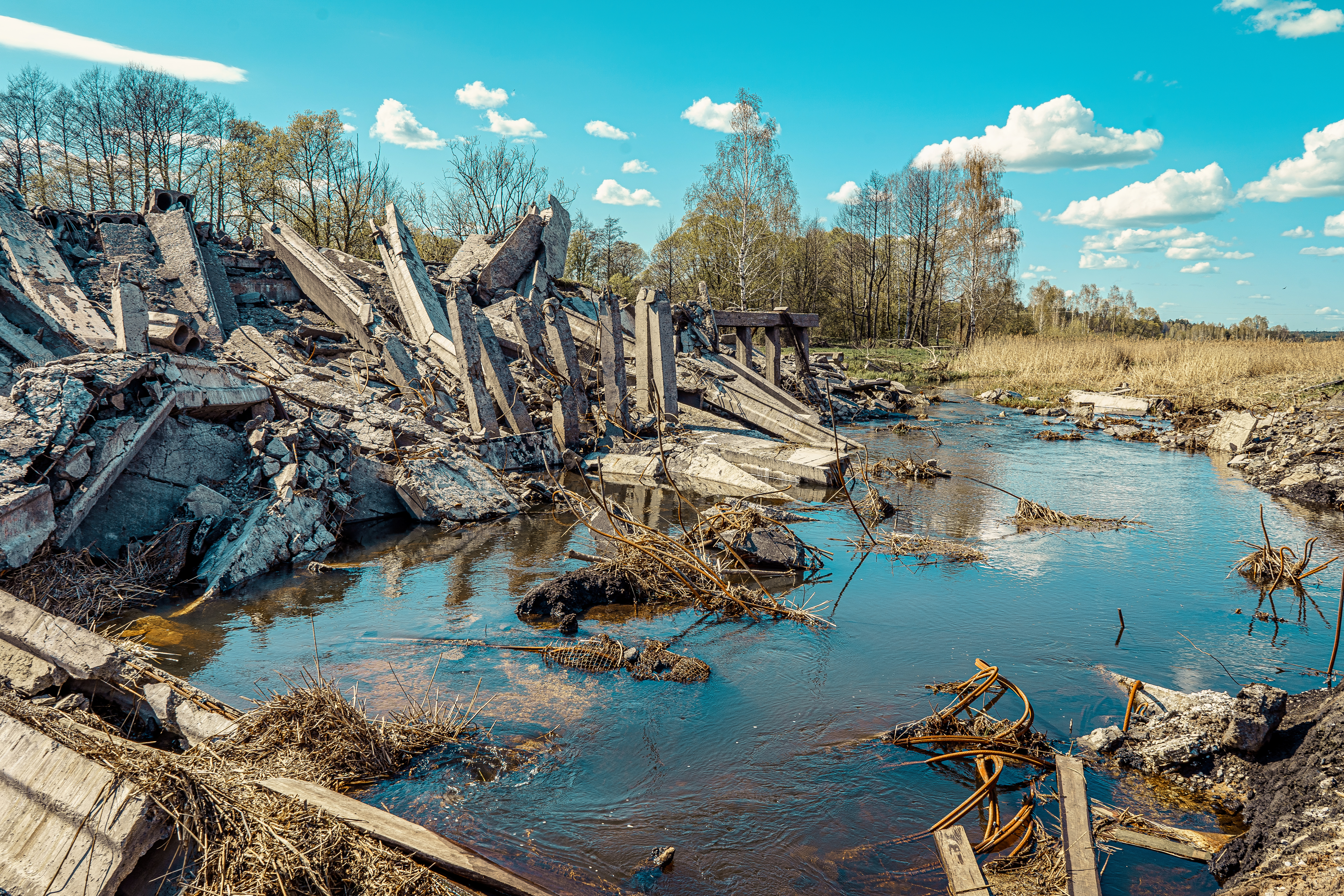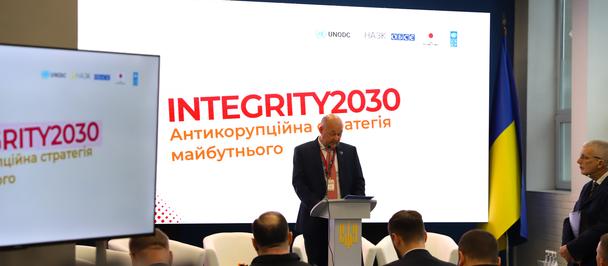Online conference also sought innovative proposals for post-war sustainable reconstruction
The destroyed bridge near the village of Rozvazhiv, Kyiv Oblast. April, 2022. Photo credit: Yurii Veres / UNDP Ukraine
Kyiv, 6 May 2022 – The war in Ukraine is not only razing entire cities and destroying infrastructure with widespread casualties, it is negatively impacting the environment, poisoning waterways and threatening ecosystems for generations to come. This was the topic of concern for an online conference organized today by the United Nations Development Programme (UNDP) together with the Professional Association of Environmentalists of Ukraine (PAEU) and the National Centre for Sustainable Development with the financial support of the European Union.
The conference also explored ways to ensure the Ukraine’s green economic recovery as soon as conditions allow.
Olena Ruditch, Coordinator of the Local Governance and Decentralization Reform component of the UN Recovery and Peacebuilding Programme, said threats to Ukraine's ecosystems need to be addressed immediately. “The environmental consequences of the war are devastating, and threatening people’s health far beyond the border’s of Ukraine, she said. “The challenges and risks continue to grow, and we must keep environmental safety and security on the agenda.”
Conference participants also discussed the development of methodologies for calculating environmental damage and critical changes to ecological legislation during martial law, the need for deregulation, and how to engage the cooperation of all stakeholders.
PAEU President Liudmyla Tsyhanok called for the development of real environmental solutions that will help reduce the carbon and ecological footprint of industries when the war is over. "Since the beginning of the war, Ukraine and all of Europe are changing their approaches to many processes and structures,” she said. “The format of cooperation in many areas will soon change. Nobody is interested in fighting for the sake of battle without visible results in all spheres – including the environment.”
The environmental consequences of war are often widespread and devastating with cascading effects. The use of explosive ordnance in urban areas, for example, creates vast quantities of debris and rubble, which can cause air, water, and soil pollution. Damage to light industry and environmentally sensitive infrastructure such as water treatment plants and water sanitation utilities could create problems that can take years to remediate. Depleted uranium, a toxic chemical that is hazardous to human and animal life, is often used for tank armor, armor-piercing bullets, and as weights to help balance aircrafts.
Background
Four United Nations agencies are implementing the United Nations Recovery and Peacebuilding Programme (UN RPP): the United Nations Development Programme (UNDP), the UN Entity for Gender Equality and the Empowerment of Women (UN Women), the United Nations Population Fund (UNFPA) and the Food and Agriculture Organization of the United Nations (FAO).
Twelve international partners support the programme: The European Union (EU), the European Investment Bank (EIB), the U.S. Embassy in Ukraine, and the governments of Canada, Denmark, Germany, Japan, the Netherlands, Norway, Poland, Sweden and Switzerland. For more information: ua.undp.org
Media inquiries
Yuliia Samus, Communications Team Leader, UNDP in Ukraine, Yuliia.Samus@undp.org

 Locations
Locations




